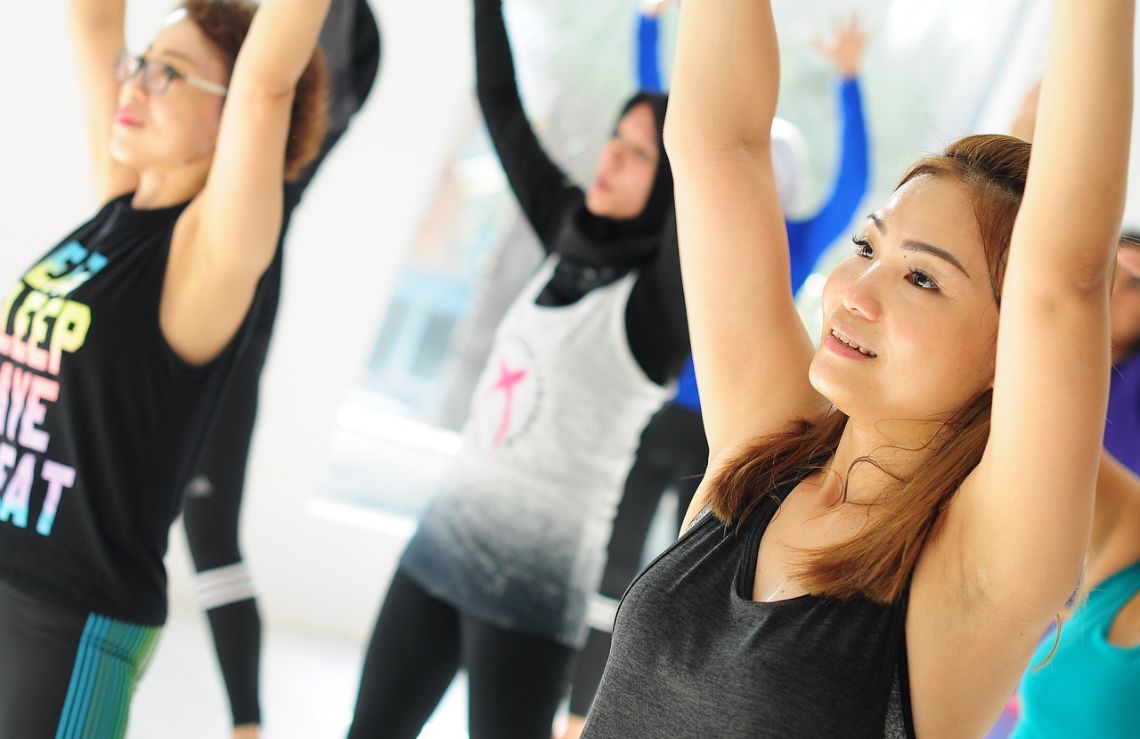
Embarking on a fitness journey is more than just achieving a specific physical goal; it’s about transforming your lifestyle for long-term health, energy, and happiness. “Transform Your Life: The Ultimate Fitness Guide to a Healthier You” is designed to help you make this change effectively by covering key aspects of fitness and wellness, from setting goals to creating sustainable habits. This guide offers expert advice and actionable steps to help you build a balanced and fulfilling approach to fitness that goes beyond physical appearance and focuses on whole-body wellness.
1. Define Your Why
Every lasting fitness transformation starts with a purpose. Defining your “why” is essential for staying motivated and committed, especially when challenges arise. Ask yourself why you want to improve your fitness and what results you hope to see beyond physical appearance. Perhaps you’re looking for more energy, mental clarity, or a way to manage stress.
“Knowing why you’re embarking on this journey gives you a solid foundation to build on and keeps you focused when the going gets tough.”
Advice: Write down your reasons for getting fit and keep them visible. Reflect on them regularly to stay grounded in your goals and remind yourself of the bigger picture.
2. Set Clear, Achievable Goals
With a defined purpose, it’s easier to set clear, actionable goals. Avoid vague goals like “get fit”; instead, be specific. For example, aim to run a 5K, lift a certain weight, or improve flexibility. Specific, measurable goals make it easier to track progress and celebrate wins along the way.
“Setting clear goals helps transform your dreams into a practical roadmap, keeping you motivated with tangible milestones.”
Advice: Use the SMART goal framework—Specific, Measurable, Achievable, Relevant, and Time-bound. This structure helps ensure your goals are realistic and achievable.
3. Create a Balanced Workout Routine
A well-rounded workout routine includes cardiovascular training, strength exercises, flexibility, and rest days. Cardio improves heart health, strength training builds muscle, and flexibility enhances range of motion, reducing injury risk. Together, these elements create a balanced fitness regimen that builds a well-rounded physique and supports overall health.
“A balanced routine not only prevents injury but also ensures you’re working toward overall fitness, giving you sustainable, long-lasting results.”
Advice: Include at least two cardio days, two strength days, and one flexibility day in your week. Rest days are just as important; they allow your body to recover and come back stronger.
4. Prioritize Nutrition
Good nutrition fuels your workouts, enhances recovery, and provides the nutrients your body needs to function optimally. Balanced meals rich in protein, complex carbohydrates, and healthy fats provide steady energy and prevent fatigue. Staying hydrated is also crucial to keep your body functioning well during exercise.
“Think of food as fuel. Eating balanced meals gives you energy, helps you recover faster, and supports your fitness journey.”
Advice: Focus on whole foods like vegetables, lean proteins, and whole grains. Avoid highly processed foods, and try to eat a balanced meal within two hours of each workout for optimal recovery.
5. Start Small and Build Consistency
When starting a fitness journey, it’s common to feel motivated to dive in full force. However, sudden, drastic changes can be overwhelming and difficult to maintain. Instead, focus on small, manageable habits, like committing to 15 minutes of activity a day and gradually building up.
“Small steps taken consistently add up to big changes. Consistency beats intensity when it comes to long-term transformation.”
Advice: Choose one small, achievable goal each week, like drinking more water, adding a short walk to your day, or getting to bed earlier. These small habits will build a solid foundation for lasting change.
6. Practice Mindful Eating
Mindful eating is all about paying attention to what, when, and why you eat. This approach helps prevent overeating, reduces cravings, and makes you more aware of how different foods affect your energy levels and mood. Rather than following restrictive diets, focus on listening to your body’s hunger cues.
“Mindful eating helps you build a positive relationship with food, making you more aware of what your body needs for fuel and satisfaction.”
Advice: Avoid distractions while eating, chew slowly, and savor each bite. Take note of how certain foods make you feel—do they energize or leave you sluggish? This awareness helps guide healthier food choices.
7. Track Your Progress
Tracking your progress is key for motivation and insight into what’s working for you. A fitness journal can help you log workouts, nutrition, and how you feel physically and mentally. Tracking allows you to celebrate your wins and pinpoint areas where adjustments may be needed.
“Progress tracking isn’t just about numbers; it’s a reflection of your journey and a powerful motivator to keep going.”
Advice: Record your workouts, measurements, energy levels, and any challenges you face. Revisit your journal weekly or monthly to see patterns and adjust your routine as needed.
8. Build a Support System
Surrounding yourself with people who support your fitness goals makes the journey more enjoyable and keeps you accountable. Whether it’s a workout buddy, family members, or a fitness group, having support can provide motivation and encouragement on tough days.
“A support system gives you accountability and encouragement, making it easier to stay on track and enjoy the journey.”
Advice: Join a local fitness class, find an online community, or invite friends to work out with you. Sharing goals and progress with others can help you stay motivated.
9. Embrace Rest and Recovery
Rest is just as important as exercise. Without adequate rest, your muscles can’t recover, which increases the risk of injury and slows progress. Sleep is also essential, as it’s when your body repairs and rebuilds muscle tissue.
“Recovery days are where growth happens. They allow your body to rebuild stronger and prepare for the next workout.”
Advice: Plan at least one rest day per week, and aim for 7–9 hours of sleep each night. Consider incorporating active recovery on rest days, like gentle stretching or walking, to stay loose and aid circulation.
10. Stay Patient and Focused on the Journey
Fitness is a long-term commitment, and true transformation doesn’t happen overnight. Embrace the process, and remember that every small change is a step toward your bigger goal. Staying patient helps prevent burnout and keeps your mindset positive, making the journey more enjoyable.
“Patience is key to lasting transformation. Celebrate each step, and focus on making steady progress toward your goals.”
Advice: Reframe setbacks as learning opportunities, and acknowledge that fitness is a continuous journey. Each workout, healthy meal, and good night’s sleep adds up to lasting change over time.


